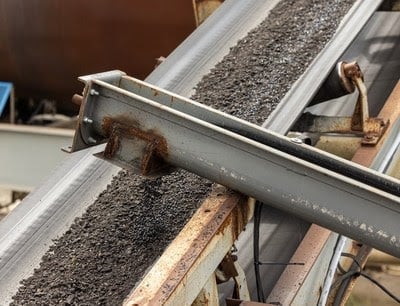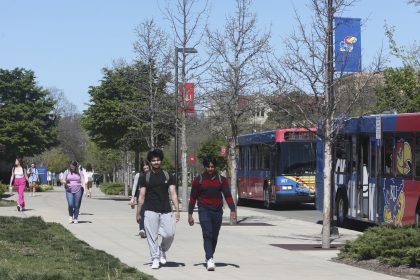Recycled Toner Finds Second Life in Asphalt Mix on Local Roadways

NEWPORT NEWS, Va. — Customers who recycle their Canon toner cartridges are contributing to a better earth and could also be providing a better driving experience as a result of a new program to turn waste toner into asphalt for local roadways.
Canon Virginia Inc., a manufacturer of office and consumer products, sought not only to recycle the plastic and other base materials in toner cartridges through its recycling program, but to find a use for the waste toner as well.
In the nineties, innovations began in recycling waste printer and copy machine toner into asphalt, but success was limited. Now, in partnership with Basic Construction Co., CVI’s Recycled Toner Pellet project has found a preferred method to reuse these leavings as an additive in asphalt mix approved by the Virginia Department of Transportation.
“After developing the recycling process for the majority of the plastic in the toner cartridges, our engineers and technicians were committed to finding a solution and creating a process for the waste toner,” Thomas Keegan, vice president of Manufacturing Engineering, said.
“Ten years ago, we didn’t have the environmental movement that we have now. Canon has been a leader in taking responsibility for the products that we produce and making sure that, from cradle to grave, they were dealt with in an environmentally responsible manner.”
Toner is a carbon powder melt-mixed with polymer. In addition to other additives, it usually contains iron oxide, polypropylene, silica, and organic pigment. While waste toner was initially tested as an asphalt colorant and binding agent, methods to incorporate toner as an additive in asphalt mixes are becoming more popular.
Sydney Australia has been using waste toner in its asphalt since the mid-2010s; the Virginia Department of Transportation approved CVI’s mix, and, according to a patent application filed by the Texas Department of Transportation, which also looked to use waste toner in its asphalt mix, “toner-modified asphalt cement, and asphalt concrete made from the modified cement, both display significantly improved strength and temperature resistance properties relative to unmodified asphalt and asphalt concrete.”
In fact, CVI’s mixes are so popular that 100% of its waste toner, formed into pellets, is being purchased by Basic. The project has also won several awards, including the Judging Committee Award for Sustainability from CVI’s parent company, Canon Inc., headquartered in Tokyo, Japan, and the Outstanding Achievement in Environmental Stewardship from Naturally Newport News, City of Newport News.
The process to make Canon’s recycled toner pellets begins at CVI’s subsidiary, Canon Environmental Technologies, in Gloucester, Virginia. When CETI receives returned toner cartridges from consumers, they are sorted by material type and automatically disassembled or processed to recover base materials, including toner.
Plastic is repelletized for use in new Canon cartridges, metals are recycled through outside partners, and toner is also pelletized and sent to Basic’s recycled asphalt pavement feeder.
Research has noted that asphalt containing recycled waste toner performs most satisfactorily in warmer climates where high temperature performance is critical and where low temperature performance is less of a concern.
Kate can be reached at [email protected]























